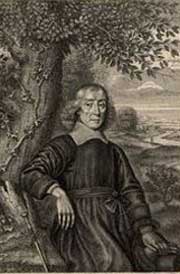
Sir Thomas More
Utopia: Hunting and Hawking
「1516」 Sir Thomas More, “Hunting and Hawking,” in Utopia, 「Written in Latin, 1515-16; Originally published in Latin, 1516; First English Edition: 1551, translated by Ralph Robinson」 (London, 1906 「Reprint of the 1551 Edition」; Google Books: Online Library of Free eBooks); 「Excerpts from the 2nd Revised Edition: London, 1565; Spelling Modernized」.
Or what delight can there be, and not rather displeasure in hearing the barking and howling of dogs? Or what greater pleasure is there to be felt, when a dog followeth a hare, then when a dog followeth a dog? For one thing is done in both, that is to say, running, if thou hast pleasure therein. But if the hope of slaughter, and the expectation of tearing in pieces the beast doth pleas thee: thou shouldst rather be moved with pity to see a silly innocent hare murdered of a dog: the weak of the stronger, the fearful of the fierce, the innocent of the cruel and unmerciful.「Hunting the basest part of butchery among the Utopians, and yet this is now the exercise of most noblemen.」Therefore all this exercise of hunting, as a thing unworthy to be used of free men, the Utopians have rejected to their butchers, to the which craft (as we said before) they appoint their bondmen. For they count hunting the lowest, the vilest, and most abject part of butchery, and the other parts of it more profitable, and more honest, as bringing much more commodity, in that at they kill beasts only for necessity, whereas the hunter seeks nothing but pleasure of the silly and woeful beasts slaughter and murder. The which pleasure in beholding death, they think doth rise in very beasts either of a cruel affection of mind or else to be changed in continuance of time into cruelty, by long use of so cruel a pleasure. These therefore and all such like, which be innumerable though the common sort of people doth take them for pleasures, yet they, seeing there is no natural pleasantness in them, do plainly determine them to have no affinity with true and right pleasure. For as touching that they do commonly move the sense with delectation (which seems to be a work of pleasure) this doeth nothing to diminish their opinion. For not the nature of the thing, but their perverse and lewd custom is the cause hereof. (112-3)



